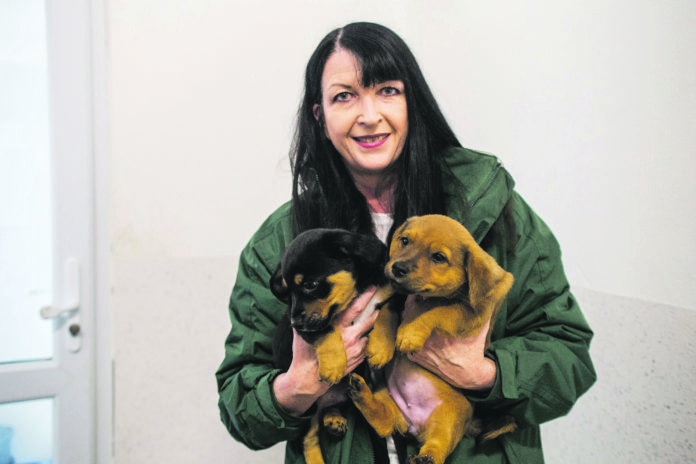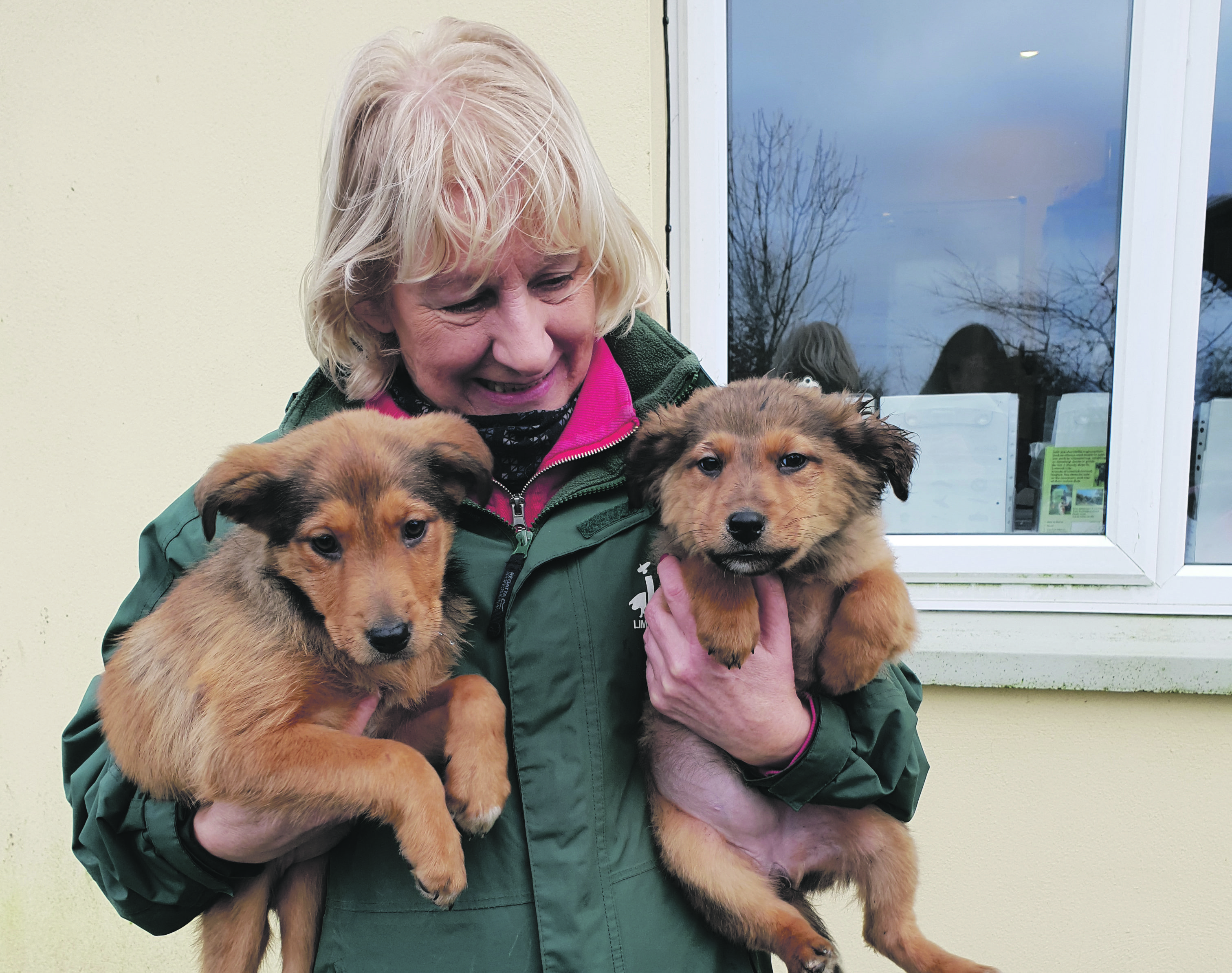
MARIE O’Connor is “in a bit of a panic” as she organises transport to Sweden for a dog from the Limerick Animal Welfare (LAW) sanctuary in Kilfinane.
The animal is one of over a hundred that LAW rescues and restores to health after they are found starving, beaten or chained in Limerick City and County.
O’Connor is the LAW Sanctuary Manager and part of her job includes overseeing the transportation of previously neglected greyhounds and lurchers to loving homes in Sweden and Italy.

Last week three emaciated lurchers were found by LAW roaming Southill with horrifically overgrown nails, emaciated, infested with fleas, and riddled with worms.
It’s a tough job, but O’Connor and the rest of the team at LAW are dedicated to the cause.
“I’m originally from London and I moved here about 20 years ago. I started with LAW as a volunteer at weekends and then I took over from the assistant manager, and then manager two years ago,” she explains.
So far this year, 500 dogs have come through the sanctuary’s doors, which is already a significant increase on the 468 for all of 2018.
The sanctuary takes in a 350 or so cats a year, but it is at full capacity all the time.
“As quickly as we are rehoming dogs, they are coming back in. The lurchers are very badly treated, as are horses. We’ve also reached full capacity for horses and can’t take in any more at the moment.
“Along with the dogs and cats, we have 24 horses; eight goats; a rabbit, and 13 chickens. We used to have a couple of pigs but they died of old age and we haven’t replaced them,” the sanctuary manager says.
Microchipping dogs and horses is a legal requirement for owners, but O’Connor feels “this is not enforced” and so, animals are neglected and left to die by the side of the road in many cases.
“There’s no responsibility involved. There’s no way of tracking the owner down so there’s no way of policing it,” she explains.
LAW aims to treat horses found in the city and, if they have to be euthanised, they arrange that as well.
The work can be Adrenalin-charged, but, its not for everyone. Volunteers are sometimes needed to pull dogs out of ditches, save horses from drowning or pick up a swan with a broken wing.
While she doesn’t fully understand why people are cruel to animals, she is convinced “some people don’t have empathy towards animals, and when they’re injured, they just don’t treat them”.
“Some people consider dogs only as security for their yard. I got a call the other day from someone who said they wanted a little dog, a yard dog to alert them if somebody was coming. They’re not seen as pets.”
Staff and volunteers at LAW have seen some of the worst cases of animal cruelty.
“I think the very worst case that came in was a dog who had a hole in its head. It looked like an untattooed greyhound lurcher, but obviously somebody had tried to kill it, and they’d smashed its skull, and shards of the bone had gone down behind his eye, and actually perforated the back of his eye, so he had to have his eye removed as well.”
“There have been cats in a very bad way, and there was a horse with really overgrown hooves – they were curled up. It was just left in a field and never had its hooves treated.
“There have been lots of very emaciated dogs full of mange, some with untreated broken legs. We do get a lot of broken legs that have to be pinned and plated,” she adds.
She admits that “some” days she looses faith in humanity, having witnessed abuse of animals over her nine years with LAW.
“But, then there’s a lot of good people and there’s a lot of good homes out there. When you see that balance, and you see the animals rescued from very bad situations when they’re terrified in the kennel, to when you bring them around and they go to a loving home and people work with them and treat them very well – that makes it all worthwhile.
The Kilfinane sanctuary is set on 30 acres, eight of which are used for the horses.
It has homed around 120 lurchers in the past year and has developed a proud tradition of rehoming 80 greyhounds a year to good homes in Italy.
“We also send dogs nearly every week to Sweden, where they take a lot of the lurchers. We find it hard to home lurchers here but they get fantastic homes over there, and we get updates all the time of them in their new homes.”
“Over there it’s very strict. You’re not allowed have a dog left outside; you have to pay a tax to own a dog; and the dogs have to have training. It’s completely different.”
Saving animals from neglect is rewarding, she says, but unless more government supports are provided for charities like LAW, they will not meet the demand for their work.
“We are struggling all the time to survive.
My message to the authorities is a simple one. Enforce the laws that are there for the animals and support charities like ourselves with more funding.”
“We are working 24 hours a day, we’ve got an emergency line, we’re working weekends and bank holidays, there’s always someone here picking up animals and responding to emergency calls.”
“So, if a dog is knocked down at midnight, we get the call. We get the vet out, and the animal will be treated and won’t be left on the side of the road dying.”
Funding is a major problem.
“We get €65,000 a year from the government and it costs €60,000 a month to run the place, so we are struggling all the time. The vet bills are huge, even though we get a small discount from the vets we use regularly.
There are 16 full and part-time staff as well as five regular volunteers looking out for Limerick’s animals.
They also operates two shops in the city and are constantly looking for volunteers.
Visit www.limerickanimalwelfare.ie for details.










